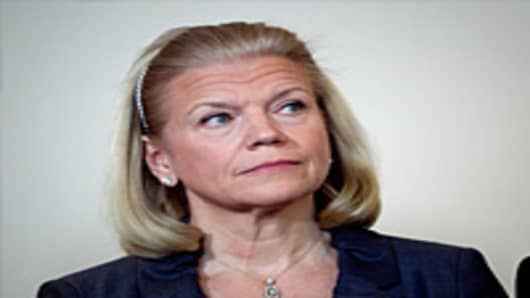Just because Augusta National doesn't choose to max out revenue doesn't mean IBM thinks less of its deal. Being one of three sponsors at a major sporting event in the cluttered world we live in has great value. That makes this IBM's most valuable sports property.
Rometty's problem is that she can't say, "I don't golf, so I have no interest in being a member." That would be read as a refusal to fight for women. If Augusta National does quietly extend an invitation and Rometty doesn't acknowledge it, it seems like she is a member for the personal gain, but doesn't choose to acknowledge its historical significance. And, finally, if she doesn't get invited and wants to be a member, she is almost obligated, as the face of IBM, to pull out of the Masters sponsorship, a tough proposition given that dollar for dollar it's probably a good spend for the company and its shareholders.
Who knows how soon Rometty, when she took the job, realized the predicament she would be in. While the pressure has been on for the last week, this has been thought about on the IBM side for a while so it makes you wonder if their silence is a strategy or a statement.
Questions? Comments? SportsBiz@cnbc.com




